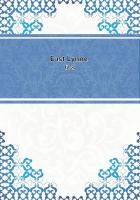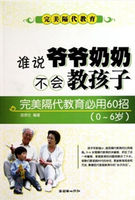"The Christian religion," he said, "was instituted for much nobler purposes, than to enforce a lesson which many heathen philosophers had taught us long before, and which, though it might perhaps be called a moral virtue, savoured but little of that sublime, Christian-like disposition, that vast elevation of thought, in purity approaching to angelic perfection, to be attained, expressed, and felt only by grace. Those," he said, "came nearer to the Scripture meaning, who understood by it candour, or the forming of a benevolent opinion of our brethren, and passing a favourable judgment on their actions; a virtue much higher, and more extensive in its nature, than a pitiful distribution of alms, which, though we would never so much prejudice, or even ruin our families, could never reach many;whereas charity, in the other and truer sense, might be extended to all mankind."He said, "Considering who the disciples were, it would be absurd to conceive the doctrine of generosity, or giving alms, to have been preached to them. And, as we could not well imagine this doctrine should be preached by its Divine Author to men who could not practise it, much less should we think it understood so by those who can practise it, and do not.
"But though," continued he, "there is, I am afraid, little merit in these benefactions, there would, I must confess, be much pleasure in them to a good mind, if it was not abated by one consideration. Imean, that we are liable to be imposed upon, and to confer our choicest favours often on the undeserving, as you must own was your case in your bounty to that worthless fellow Partridge: for two or three such examples must greatly lessen the inward satisfaction which a good man would otherwise find in generosity; nay, may even make him timorous in bestowing, lest he should be guilty of supporting vice, and encouraging the wicked; a crime of a very black dye, and for which it will by no means be a sufficient excuse, that we have not actually intended such an encouragement; unless we have used the utmost caution in chusing the objects of our beneficence. Aconsideration which, I make no doubt, hath greatly checked the liberality of many a worthy and pious man."Mr. Allworthy answered, "He could not dispute with the captain in the Greek language, and therefore could say nothing as to the true sense of the word which is translated charity; but that he had always thought it was interpreted to consist in action, and that giving alms constituted at least one branch of that virtue.
"As to the meritorious part," he said, "he readily agreed with the captain; for where could be the merit of barely discharging a duty? which," he said, "let the world charity have what construction it would, it sufficiently appeared to be from the whole tenor of the New Testament. And as he thought it an indispensable duty, enjoined both by the Christian law, and by the law of nature itself; so was it withal so pleasant, that if any duty could be said to be its own reward, or to pay us while we are discharging it, it was this.
"To confess the truth," said he, "there is one degree of generosity (of charity I would have called it), which seems to have some show of merit, and that is, where, from a principle of benevolence and Christian love, we bestow on another what we really want ourselves; where, in order to lessen the distresses of another, we condescend to share some part of them, by giving what even our own necessities cannot well spare. This is, I think, meritorious;but to relieve our brethren only with our superfluities; to be charitable (I must use the word) rather at the expense of our coffers than ourselves; to save several families from misery rather than hang up an extraordinary picture in our houses or gratify any other idle ridiculous vanity- this seems to be only being human creatures. Nay, I will venture to go farther, it is being in some degree epicures: for what could the greatest epicure wish rather than to eat with many mouths instead of one? which I think may be predicated of any one who knows that the bread of many is owing to his own largesses.
"As to the apprehension of bestowing bounty on such as may hereafter prove unworthy objects, because many have proved such; surely it can never deter a good man from generosity. I do not think a few or many examples of ingratitude can justify a man's hardening his heart against the distresses of his fellow-creatures; nor do I believe it can ever have such effect on a truly benevolent mind. Nothing less than a persuasion of universal depravity can lock up the charity of a good man; and this persuasion must lead him, I think, either into atheism, or enthusiasm; but surely it is unfair to argue such universal depravity from a few vicious individuals; nor was this, Ibelieve, ever done by a man, who, upon searching his own mind, found one certain exception to the general rule." He then concluded by asking, "who that Partridge was, whom he had called a worthless fellow?""I mean," said the captain, "Partridge the barber, the schoolmaster, what do you call him? Partridge, the father of the little child which you found in your bed."Mr. Allworthy exprest great surprize at this account, and the captain as great at his ignorance of it; for he said he had known it above a month: and at length recollected with much difficulty that he was told it by Mrs. Wilkins.
Upon this, Wilkins was immediately summoned; who having confirmed what the captain had said, was by Mr. Allworthy, by and with the captain's advice, dispatched to Little Baddington, to inform herself of the truth of the fact: for the captain exprest great dislike at all hasty proceedings in criminal matters, and said he would by no means have Mr. Allworthy take any resolution either to the prejudice of the child or its father, before he was satisfied that the latter was guilty; for though he had privately satisfied himself of this from one of Partridge's neighbours, yet he was too generous to give any such evidence to Mr. Allworthy.















